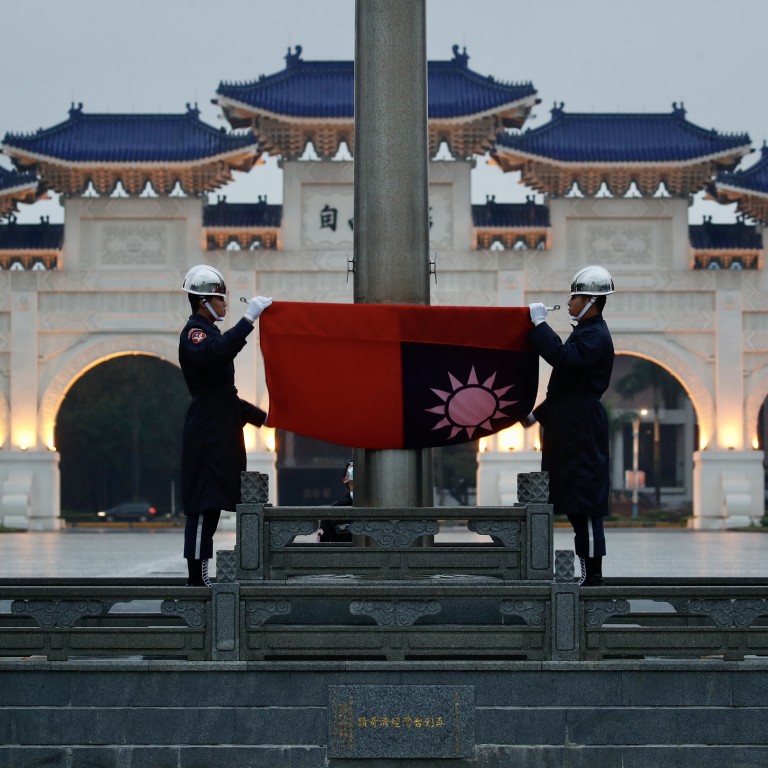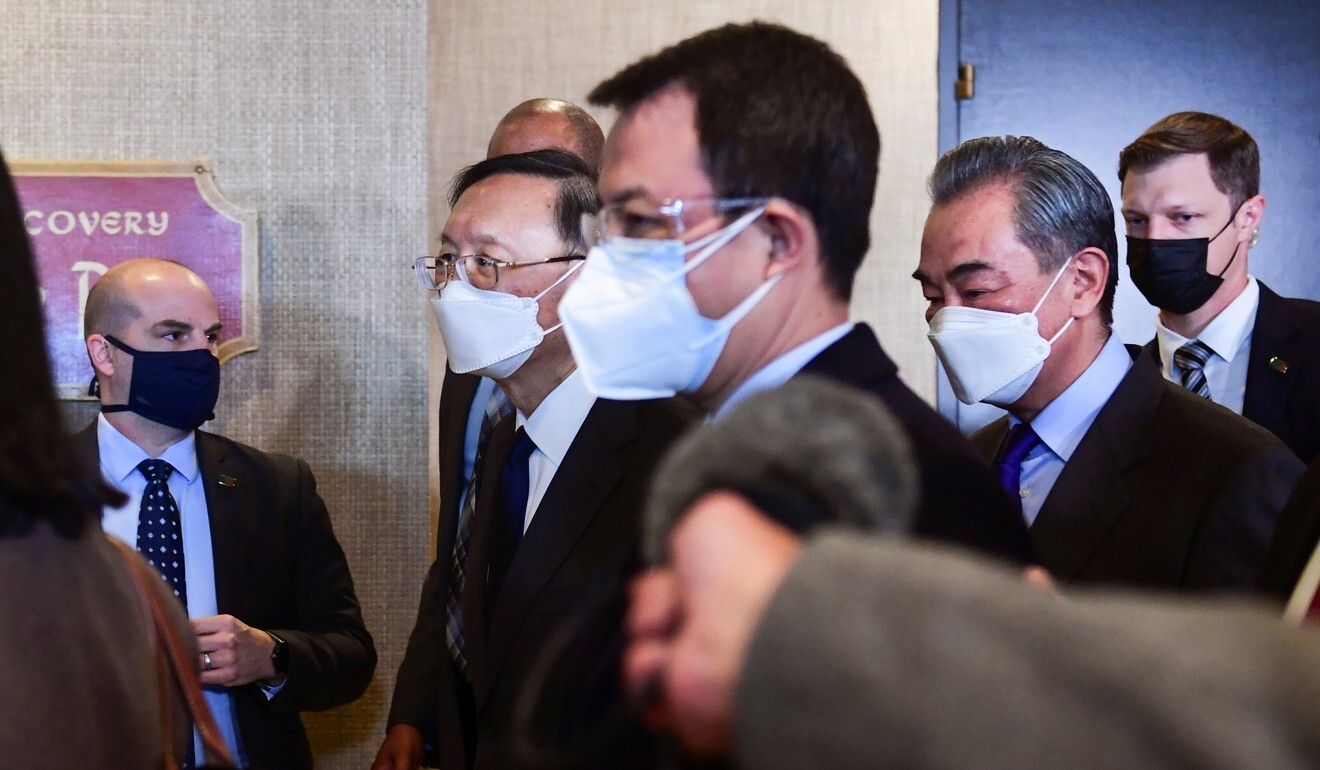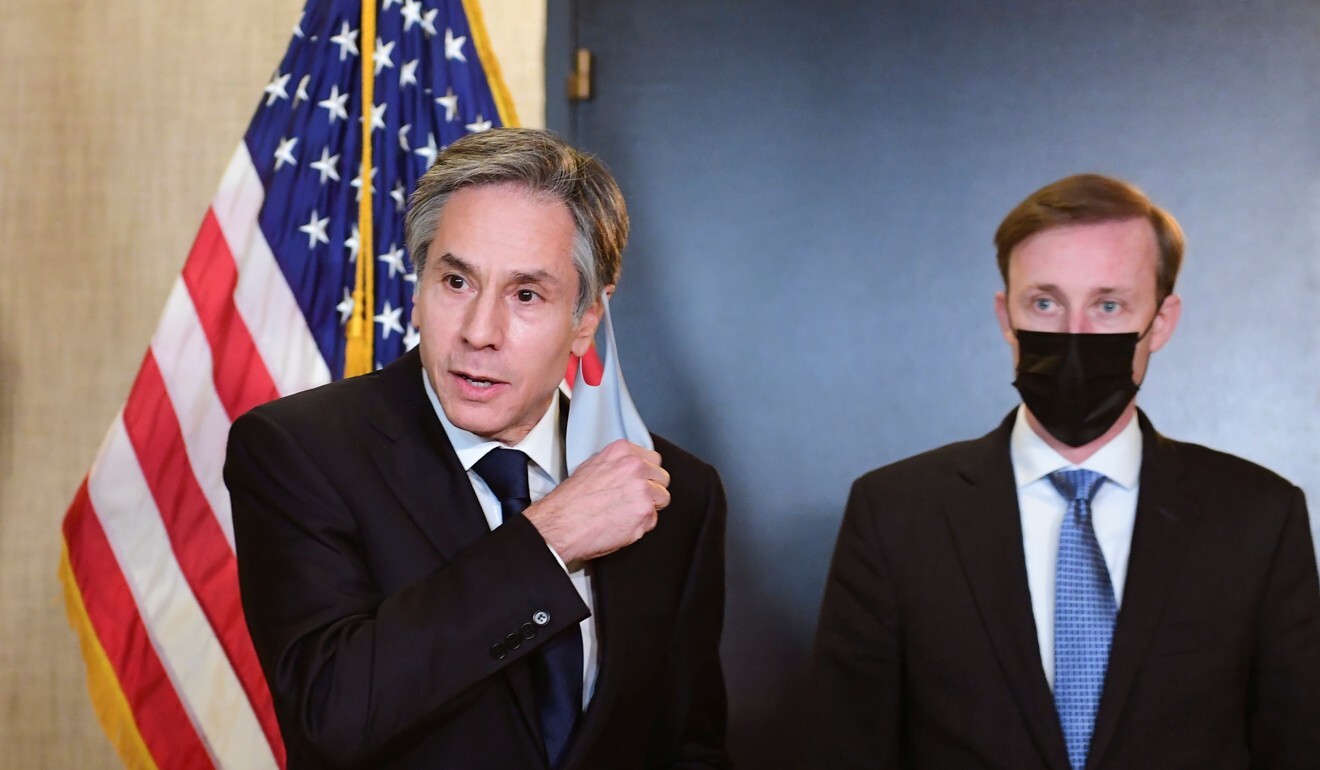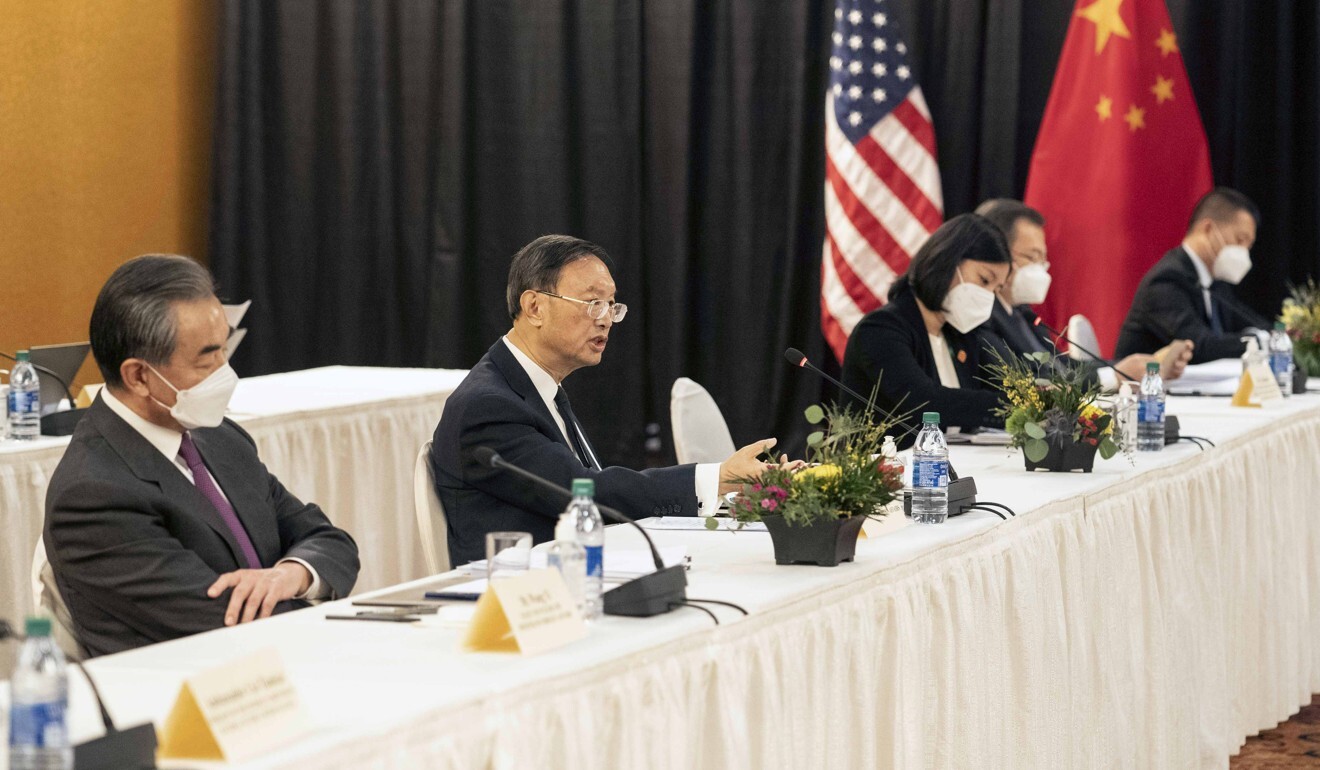
Alaska summit: officials’ take on ‘one-China’ reveals two opinions on Taiwan
- Washington may have switched its diplomatic allegiance to Beijing from Taipei in 1979 but that doesn’t mean it supports the mainland’s goal to ‘reunify’ the self-ruled island, observers say
- US Secretary of State Antony Blinken said after the talks in Anchorage that the two sides remained fundamentally at odds over Taiwan
Although the self-ruled island has never been governed by the Communist Party, Beijing considers it part of its sovereign territory and has not ruled out the use of force to reunify it with the mainland.

Wang Kung-yi, head of the Taiwan International Strategic Study Society, a Taipei-based think tank, said there was no question that the US acknowledged the mainland’s stance on Taiwan being part of China, but it had never given its support for Beijing to “take back” the island.
“By saying that it would uphold the one-China policy, the US was merely reiterating its long-standing position and that there had been no change in the substance of that policy,” he said.

Chao Chien-min, a professor at Chinese Culture University in Taipei, said that as far as the US was concerned, the one-China policy comprised the Taiwan Relations Act, the three joint communiques signed with the mainland and the six assurances that underscored America’s ties with the island.
“It was never the same as the mainland’s one-China principle,” he said, adding that by acknowledging that both Taiwan and the mainland were part of China, Washington had never clearly defined what China represented.
Washington and Beijing signed the three communiques in 1972, 1979 and 1982, in which they laid out their respective positions on Taiwan. The Taiwan Relations Act, which was signed soon after Washington switched its diplomatic allegiance, underscores the US’ commitment to supply Taipei with the arms necessary to defend itself.
In 1982, the US issued six assurances to Taiwan: that it would not set a date for ending those arms sales nor would it consult Beijing on the issue. It also promised to refrain from acting as mediator in relations between Beijing and Taipei, and said it would neither revise the Taiwan Relations Act, alter its position on the island’s sovereignty, nor exert pressure on Taiwan to enter into negotiations with the mainland.

China’s top diplomat Yang Jiechi, who heads the Office of the Central Commission for Foreign Affairs, responded by accusing Washington of interfering in China’s internal affairs.
“Xinjiang, Tibet and Taiwan are inalienable parts of China’s territory … We have expressed our staunch opposition to such interference and we will take firm actions in response,” he said.
“We are having this dialogue today to follow up on the common understanding of the two presidents reached during their phone conversation. And having this dialogue is, in fact, a decision made by the two presidents.”
The “people of the two countries and the world” were hoping to see practical outcomes from the talks, he said.
Chinese Foreign Minister Wang Yi, who also took part in the meeting, stressed Beijing’s reluctance to move on matters it considered its sovereign jurisdiction.

